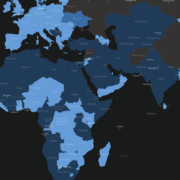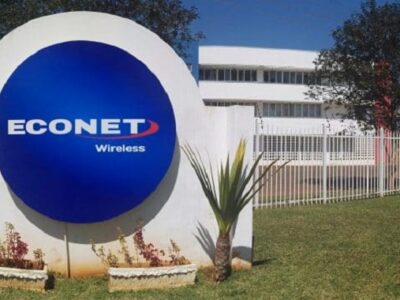For years, the question has been asked: Can a business create value for its shareholders by generating profits, and for its customers by offering products and services that meet their needs, while at the same time give back to the communities in the markets it serves?
Or, put differently, the question has been asked: Is it possible for a business to do well (financially), and to do good (socially) at the same time?
Econet Wireless Zimbabwe (EWZ), the largest mobile network operator in the country, appears to have started answering the question in its own way.
The company posted annual revenues of $622 million for the 12 months ending February 28, 2017, earnings before tax and other costs of $224 million, and a profit after tax of $36,2 million.
The EWZ Chief Executive Douglas Mboweni, this week announced that the mobile operator has embarked on a road rehabilitation project, in partnership with local rural communities, which is set to create up to 1 000 jobs.
He said the company would invest $3 million dollars over the next 8 months in repairing the rural access roads that lead to its base station sites and, in the process, create jobs for rural communities within Econet’s rural network coverage areas.
“Rather than hire contractors from the big cities and towns we thought it would be beneficial to the rural communities if we hired local labour from among the communities to do the work,” he said, adding that the company expected to create up to 1 000 jobs from the initiative.
There is no doubt Econet, which recently announced a quarterly dividend to its shareholders, is doing this for its own good. It is not in the company’s interests for the rural access roads to deteriorate to a point where the company’s technical maintenance teams, and the fuel delivery trucks to their base stations are unable to access their rural sites. Yet it is also true that by purposefully choosing to employ local rural labour, Econet is intentionally creating an employment opportunity for communities close to its network assets and sites.
So, he makes it clear it will benefit both Econet and the communities. But it is worthwhile to note that Econet has been involved in creative ways of making its rural network investments benefit the local communities.
The company already uses surplus power from its rural base stations to keep some drugs and medicines refrigerated for use in nearby rural clinics in a programme the company calls “Energise the Chain”.
This is another example of an attempt to do well and do good at the same time.
It also involves the dimension of sustainability – of ensuring that the effort benefits both the corporate and the rural community. In the case of the “Energise the Chain” programme, Econet uses surplus (or redundant) power, which the company would have paid for anyway, to do social good in providing free refrigeration for clinics outside the national power grid.
Regarding the rural access roads, Econet’s technical director, Mr Kezito Makuni, said work was already underway in the four provinces of Mashonaland Central, Masvingo, Manicaland and Matabeleland South, where he said the company’s project teams had already surveyed a total of 43 roads targeted for rehabilitation, out of a total of 100, when the project is completed early next year.”
The company’s commitment and contribution to education for orphaned and vulnerable children through Higherlife Foundation via the Capernaum and Joshua Nkomo Scholarships is also well documented, with over 250 000 children having benefited from the scholarships since the inception of the programmes several years ago.
The social investment has been on the back of a cumulative $3 billion that Econet has invested in the economy through payments to suppliers of goods and services since 2009, and $1.3 billion in payments to the Government and its agents through taxes and other levies since 2009.
The announcement of the rural road rehabilitation follows a partnership the company has forged with the Environmental Management Agency, which saw the company supply 1 000 litter bins to the City of Harare last week, as part its support for the capital city’s waste disposal efforts, and its commitment to a clean environment.
Source: The Herald













Comments